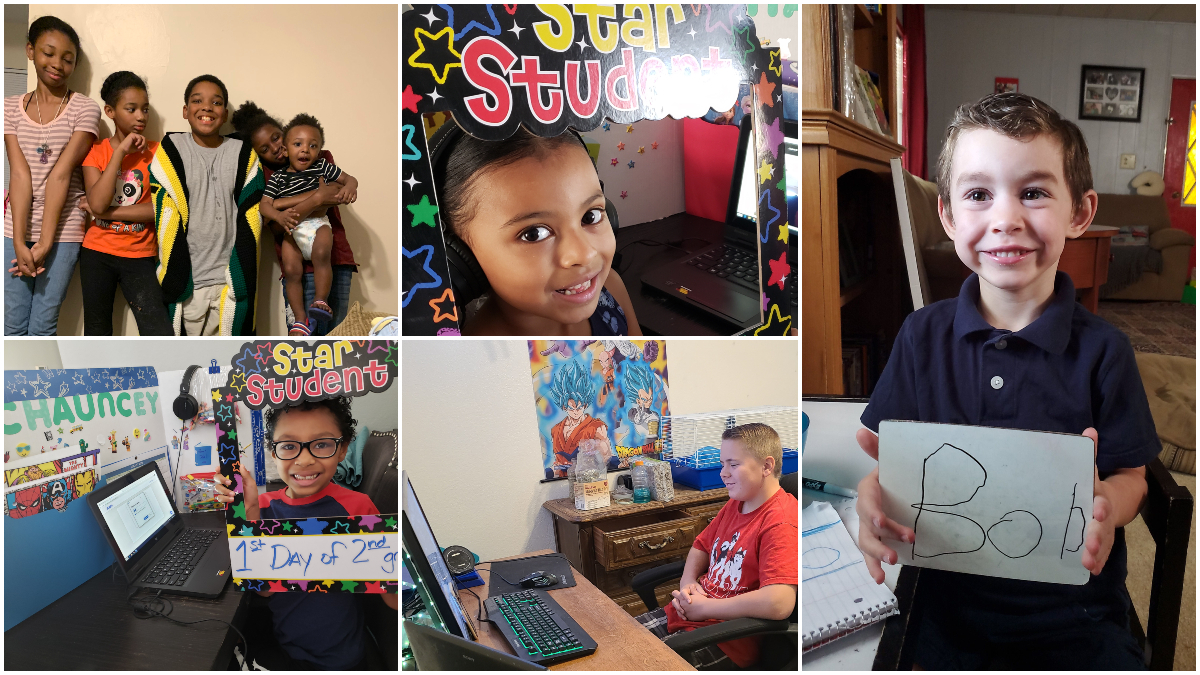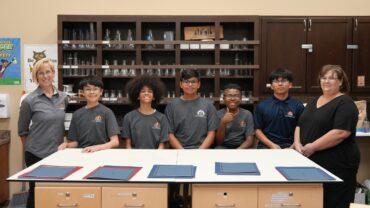iLEAD Lancaster Charter School Culture: Social Intelligence

In the iLEAD Lancaster Charter School approach to project-based learning, which produces well-rounded kids, social intelligence is a key component of whole-child development.
What do we mean by social intelligence? It’s a person’s ability to interact well with others. It’s often simply called people skills, or tact. It isn’t necessarily a natural-born characteristic, but it can be learned. It involves situational awareness, understanding of social dynamics, and self-awareness.
In a nutshell, it’s the ability to recognize our emotions, exert control over them, show empathy for others, handle conflict well, and make good choices. By helping kids develop social intelligence, we empower them to build stronger relationships and lay the groundwork for bright futures.
Social intelligence isn’t static; it continually develops throughout one’s life. It’s never too late to sharpen it, and children are especially ready to learn. Educating children on healthy communication helps them to be a friend who is empathetic, generous, kind, and a good listener. There are four main characteristics of social intelligence:
Empathy: Empathy determines how well one relates to other people’s thoughts and emotions. Empathetic people consider and understand diverse perspectives, even if they don’t share the same ideas. They can pick up on a person’s mood and adjust their reactions accordingly.
Respect: Mutual understanding calls for a degree of respect. Respecting others can mean adapting communication styles to fit their needs, or finding a healthy compromise.
Behavior: This component concerns how people carry themselves in social situations. Are their actions appropriate for the setting? Do they make others feel relaxed or uncomfortable? A person must be able to adapt when necessary while maintaining their core values.
Self-efficacy: This characteristic refers to how a person judges themselves on their capacity to perform particular tasks. If someone has a stable sense of self-efficacy concerning social intelligence, they’re confident in their social abilities.
These skills are reinforced in school, but the foundations are set at home, which is one reason why iLEAD Lancaster believes in strong parent/guardian involvement in the educational process.
We can do the following to develop our social intelligence:
- Pay close attention to what and who are around us
- Work on increasing our emotional intelligence
- Respect cultural differences
- Practice active listening
- Appreciate the important people in our lives
Much like the other components of the iLEAD Lancaster approach to education, the development of social intelligence builds strengths in kids, as well as sharpening all the other pillars of social-emotional and project-based learning — resulting in well-rounded kids who are ready for whatever challenges life may bring.
RECENT POSTS

DreamUp MixStix Loading 2025: iLEAD Lancaster Experiment Soars to the ISS!
Our DreamUp experience for iLEAD learners has been an out-of-this-world adventure! Recently, learners from iLEAD Lancaster loaded their carefully designed experiment into MixStix for its journey to the International Space… Read more

iLEAD Lancaster School Site Council Meeting: June 3
iLEAD Lancaster receives federal funding to develop programs for learners and provide staff training. The School Site Council, comprised of elected parents, facilitators, and staff, collaborates with the administration to… Read more

Sign Up for iLEAD Lancaster’s Free Summer Enrichment Program
We are excited to offer a free Summer Enrichment Program at iLEAD Lancaster! June 23-July 22, learners enrolled for the 2025-26 school year can attend campus sessions Monday through Friday… Read more


